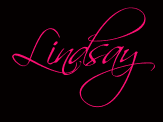Book Summary:
2200 BCE: Marauders invade ancient Eire seeking copper and gold. The astronomer Boann and the enigmatic Cian must use all their wits and courage to save their people, the peaceful starwatchers, from the invaders' long bronze knives and scavenging ways. Tensions between new and old cultures and between Boann, Elcmar, and her son Aengus, ultimately explode. What emerges from the rubble of battle is a fresh take on Ireland's oldest legends.
BENDING THE BOYNE draws on 21st century archaeology to show the lasting impact when early metal mining and trade take hold along north Atlantic coasts. Carved megaliths and stunning gold artifacts, from the Pyrenees up to the Boyne, come to life in this researched historical fiction.
About the Author:
J. S. Dunn resided in Ireland during the past decade, and from there pursued a keen interest in early Bronze Age culture along the Atlantic coasts of Spain, France, Wales, and Ireland. Numerous archaeologists and experts vetted the details of BENDING THE BOYNE.
The author is an attorney and has been published in the fields of law and psychology. BENDING THE BOYNE is a debut novel and won the Next Generation Indie Award for historical fiction, 2011.
J.S. Dunn's Website HERE
J.S. Dunn on FACEBOOK
My Thoughts:
Wow, this is such a beautiful book. The writing is beautiful, the story is beautiful, the legends and folklore are beautiful, and the setting is beautiful. I don't think I can say that word enough about this novel.
I was very curious when I first saw this book because I have a degree in anthropology and the cover caught my attention immediately. I was also interested in ancient Ireland and what this author had to teach me about it. This book was the perfect introduction into a topic I am not that knowledgeable about.
I thought this was going to be strictly historical, but there is definitely a fantasy side to it as well. The fact that it is told from the perspective of the Starwatchers and the author really does tie that side in with the historical perspective of ancient Ireland beautifully. I was amazed throughout the novel of how much I felt like I was learning, the only thing that could have made it better was to actually be in Ireland connecting these scenes with actual places.
It is clear right off the bat that this author did a tremendous amount of research regarding ancient Ireland and her people. He has the details right on and presents a crystal clear picture for readers. The characters are beautifully written, and really do radiate off the pages.
I would highly recommend this novel, it really will appeal to those who want to broaden their knowledge and world experience. It is not something I read quickly, but it was worth the time definitely.
Suggested Reading Group Questions:
1. During what time frame does BENDING THE BOYNE take place?
Hint: there is more than one answer.
2. In your opinion, who or what is the narrator of BENDING THE BOYNE ?
3. What cultural, linguistic, and other changes are implied as the story progresses? How do the actions of Boann and Cian influence those changes, or, to what extent is each a victim of "fate"?
4. Divide into teams and see which team can locate the most puns, the most allusions to "Celtic" mythology, and the most references to Irish literature (Hint: Swift, Yeats, Flann O'Brien, Roddy Doyle, Patrick McCabe, and others), and to popular world culture and "celebrities".
5. For astronomy or physics buffs, what characters resemble a component of our solar system and why? How might the epistemology or concepts of the universe have changed since 2200 BCE? What non-Mediterranean concepts from antiquity might we still carry—and, what might have been lost due to the accretion of Greek and Roman influences?


No comments:
Post a Comment